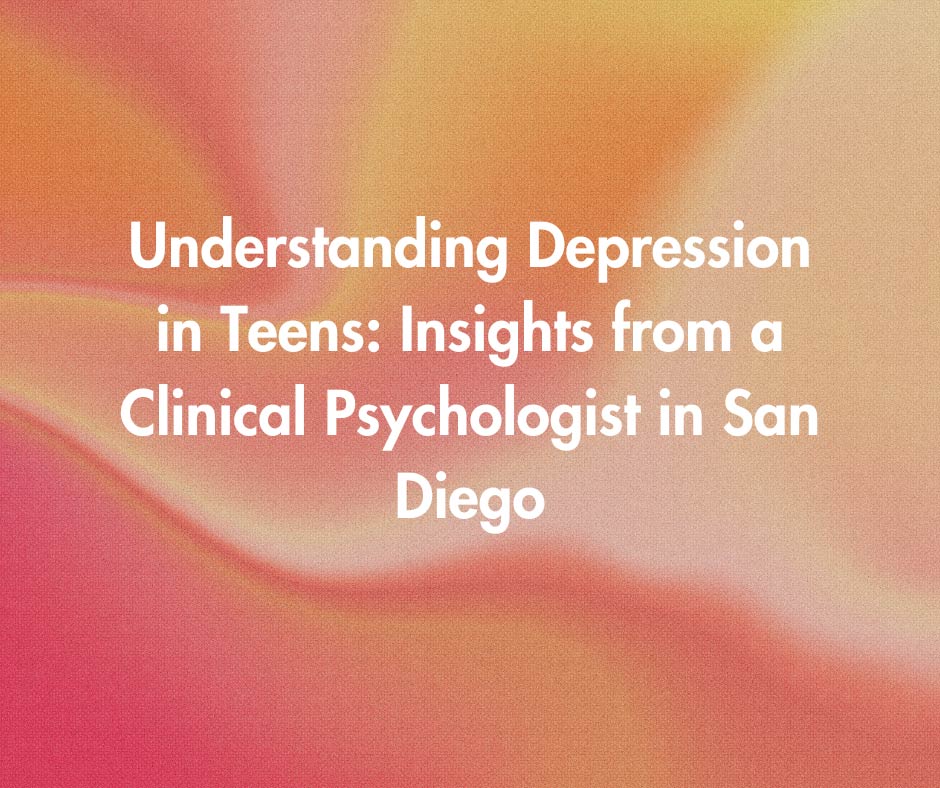Understanding Depression in Teens: Insights from a Clinical Psychologist in San Diego

- Persistent Sadness or Irritability: A teen may exhibit ongoing sadness or a noticeable shift in mood, such as increased irritability or frustration.
- Loss of Interest: A decline in interest or enjoyment in activities previously enjoyed, such as sports, hobbies, or social interactions.
- Changes in Sleep Patterns: Significant changes in sleep habits, including insomnia or oversleeping.
- Appetite Changes: Fluctuations in eating habits, which can result in weight gain or loss.
- Social Withdrawal: Avoidance of social activities and withdrawal from friends and family.
- Decline in Academic Performance: A noticeable drop in grades or a lack of motivation towards schoolwork.
- Physical Complaints: Frequent complaints of physical symptoms like headaches or stomach aches without a clear medical cause.
If you notice these symptoms persisting for more than a few weeks, it’s crucial to seek professional help. Early intervention is key in managing and treating depression effectively.
- Genetics: A family history of depression or other mental health disorders can increase a teen’s risk.
- Brain Chemistry: Imbalances in brain chemicals (neurotransmitters) may contribute to depressive symptoms.
- Life Events: Stressful or traumatic life events, such as bullying, family conflict, or loss, can trigger depression.
- Hormonal Changes: Adolescence is a time of significant hormonal changes, which can influence mood and emotional regulation.
Understanding these factors can help parents and caregivers provide better support and seek appropriate interventions.
1. Therapy and Counseling:
- Cognitive Behavioral Therapy (CBT): CBT is a well-established approach for treating depression. A CBT therapist in San Diego can help your teen identify and change negative thought patterns and behaviors contributing to their depression.
- Family Therapy: Involving family members in therapy can improve communication and address any family dynamics that may be impacting your teen’s mental health.
2. Medication:
In some cases, medication may be prescribed to help manage symptoms. It’s essential to consult with a psychiatrist or a medical professional specializing in adolescent mental health to determine if this is necessary.
3. Lifestyle Changes:
- Healthy Routine: Encouraging a balanced routine that includes regular exercise, healthy eating, and adequate sleep can significantly impact mental health.
- Stress Management: Teaching stress management techniques such as mindfulness and relaxation exercises can help reduce symptoms.
4. Support Systems:
- Build a Support Network: Encourage your teen to maintain connections with supportive friends and family members. A strong support network can provide emotional reinforcement during challenging times.
- School Support: Work with school counselors and teachers to ensure your teen receives the necessary support and accommodations in their academic environment.
Feel free to contact us for more information or to schedule a consultation. Together, we can work towards a healthier, happier future for your teen.
Reach out to start
your healing journey

